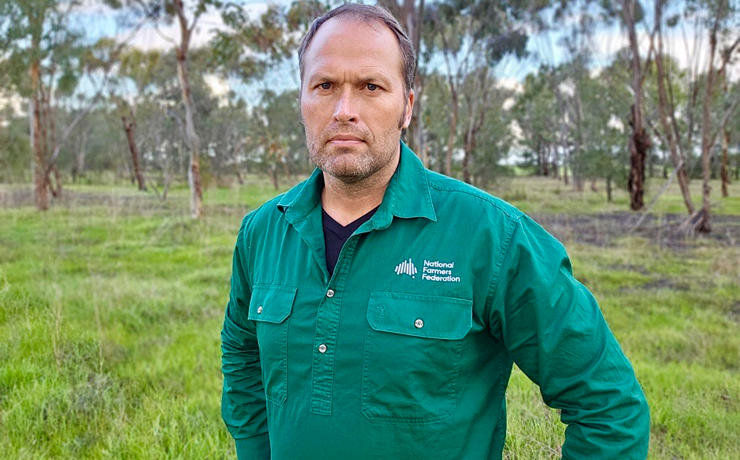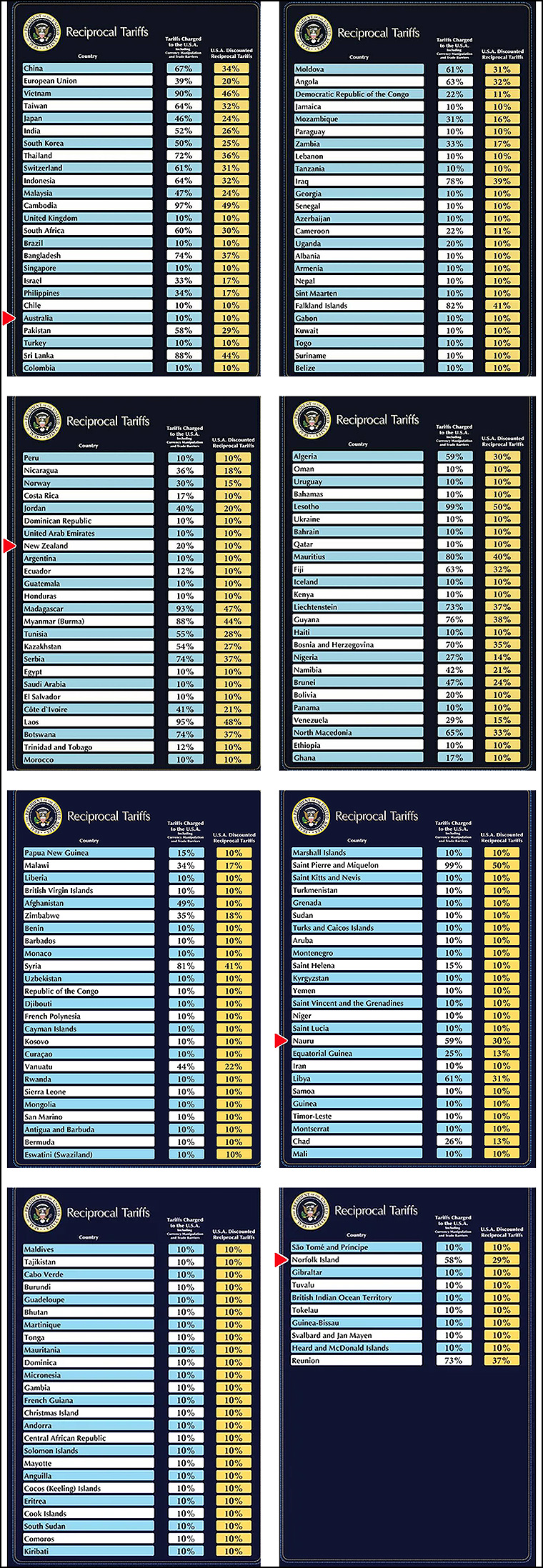
April 3, 2025
The National Farmers’ Federation has expressed “profound disappointment” in the United States’ decision to impose a 10 per cent tariff on all Australian exports.
The 10 per cent is the base level in the global “reciprocal” tariffs announced by US President Donald Trump on Thursday morning, with several countries facing much larger imposts.
“This decision is a disappointing step backward for our nation and for the global economy,” NFF president David Jochinke said.
“The Australian agricultural industry supports a considered and measured approach to negotiations with the United States and will work closely with the government and all sides of politics to seek a resolution to this issue.
“The NFF has long championed free and fair trade, not just for agriculture but all industries, recognising its role in global economic growth and stability. Australian agriculture is unwavering in its commitment to this.
“Australian producers are resilient in the face of challenges. Being among the least subsidised farmers in the world has seen the sector become highly efficient and productive.
“While this decision creates unnecessary uncertainty, we remain confident in the strength of Australian agriculture. Our products are sought after worldwide for their quality, sustainability, and reliability.”
The NFF pointed out:
- The US is a multi-billion dollar investor in Australian agriculture, owning and leasing about 2 million hectares of Australian agricultural land
- Australia imports $2.5 billion worth of US food and agricultural products annually
- Australian producers import significant amounts of US crop science, genetics, agricultural innovation and insurance products
- Australian producers import about $400 million worth of farm machinery from the US a year
* * *

Prime Minister Anthony Albanese condemned Thursday’s announcement by President Trump as “unwarranted” and “not the act of a friend”.
“President Trump referred to reciprocal tariffs. A reciprocal tariff would be zero, not 10 per cent,” the Prime Minister said.
“The administration’s tariffs have no basis in logic and they go against the foundation of our two nations’ partnership.”
Federal Treasurer Jim Chalmers said it was “a dark day” for the global economy.
Nationals Leader David Littleproud said the decision would hit American consumers of Big Macs.
“The reality is what we export to the United States is lean beef. The United States doesn’t produce the quantities that we do to be able to go into that product, so what … President Trump is effectively doing is tariffing his own country,” Mr Littleproud said.
Opposition Leader Peter Dutton suggested the Federal Government could have leveraged a better deal by speaking more about Australia’s defence relationship with the US.
* * *
Meat & Livestock Australia said it was “navigating the challenges” posed by the US decision.
Managing director Michael Crowley said that MLA and the industry had already been working on this issue throughout 2025 with the aim to grow global demand.
“US tariffs will impact the prices paid by American families and may have flow on impacts on the supply chain. It is unlikely these changes will make a difference to retail prices here in Australia,” Mr Crowley said.
The MLA said there was a strong demand for high-quality red meat globally and Australia exported record amounts in 2024 to more than 100 countries.
“The demand outlook for Australian red meat remains very strong and we maintain favourable market access conditions with over 85 per cent of exports covered by free trade agreements,” Mr Crowley said.
Australia’s other major markets include Greater China, Japan and Korea, worth $3.9 billion, $2.6 billion and $2.5 billion respectively. The Middle East / North Africa market is worth $2 billion with opportunities for growth.
* * *
The Red Meat Advisory Council also expressed disappointed in the US decision, saying it would hit American consumers.
Chair John McKillop said the decision failed to recognise that Australian red meat contributed to stable food supplies and prices in the United States.
“The US was Australia’s largest red meat export market in 2024, worth $6.07 billion, almost one-third of total global exports,” Mr McKillop said.
“The US will continue to be a key market despite these tariffs.
“A major component of Australia’s exports to the US supports a strong appetite for hamburgers.
“Without Australian lean beef blended with local fatty trim, the US would need to use higher value cuts in their burgers and miss out on valuable export opportunities. This in turn optimises value for US ranchers.
“Australian beef is in an estimated six billion hamburgers consumed each year in the US and this tariff will cost the US consumer an additional $US180 million per year.”
* * *
Reciprocal Tariffs Table
Here is the list of countries that had “reciprocal” tariffs applied to them by the United States on Thursday (the blue/white column is what the USA believes the countries are charging the USA, the yellow column is the new “reciprocal” rate imposed by President Donald Trump. NB. The China figure of 34 per cent is on top of US tariffs already in place, taking the total to a reported 54 per cent.
[Information from Truth Social and The White House]
[UPDATED]
























